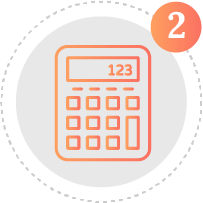Maximize Your Property's Potential with Loan Against Property
With a LAP Loan, you can borrow against your property's value and achieve your financial objectives

With a LAP Loan, you can borrow against your property's value and achieve your financial objectives

Our LAP loan allows you to leverage the value of your property to secure a substantial loan amount and fulfill your financial goals

LAP loans allow borrowers to avail higher loan amounts compared to unsecured loans, as the loan is secured against the property

LAP loans typically offer lower interest rates compared to unsecured loans, making it a cost-effective financing option

Borrowers have the flexibility to choose the repayment tenure that suits their financial situation

Get speedy approval and disbursal with LAP loans, especially with well-organized property documents

Timely repayment of LAP loans boosts credit scores, aiding future credit applications

Depending on the purpose of the loan, borrowers may be eligible for tax benefits on the interest paid on the LAP loan
a quick and transparent process

Check eligibility criteria before applying for a loan to ensure approval possibilities.

Estimate your monthly EMI effortlessly with our user-friendly loan calculator.

Ensure which necessary documents are required for loan application.

Accurately provide all required information in the loan application form for prompt processing.
Essential documents that need to be provided to complete the process successfully are listed below:
Any government-issued identification document such as Aadhaar card, PAN card, passport, voter ID card, or driving license
Recent photographs of the loan applicant
Documents related to the property being purchased or used as collateral, including sale agreement, allotment letter, possession letter, and title deed
Copy of the ITR filed for the previous years and Form 16, which is provided by the employer and reflects the tax deducted at source (TDS)
Pay slips or salary certificates from the employer for the past six months, indicating the monthly income and deductions
PDCs or ECS mandates are provided to facilitate monthly loan repayments
Additional income proof documents may be required, such as bank statements for the past six months, balance sheets, profit and loss statements
In some cases, we may ask for additional security cheques as a safeguard against any defaults in loan repayments
frequently asked questions
